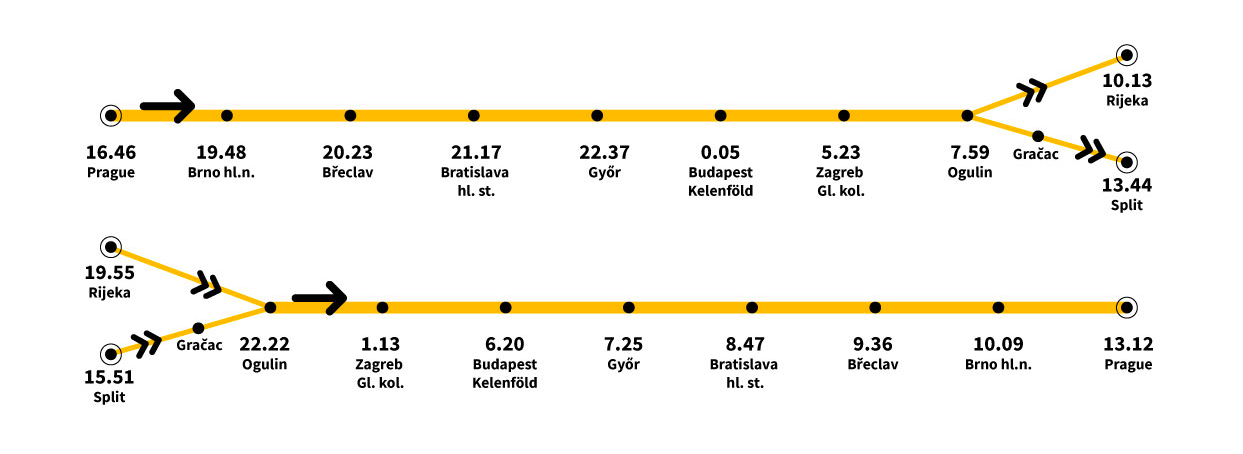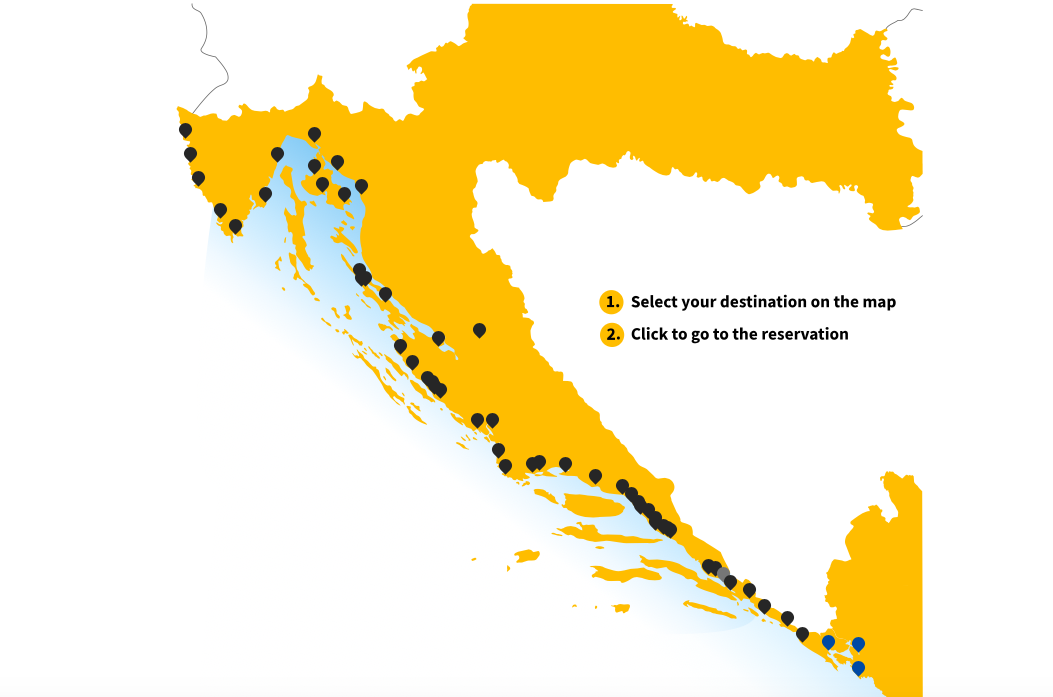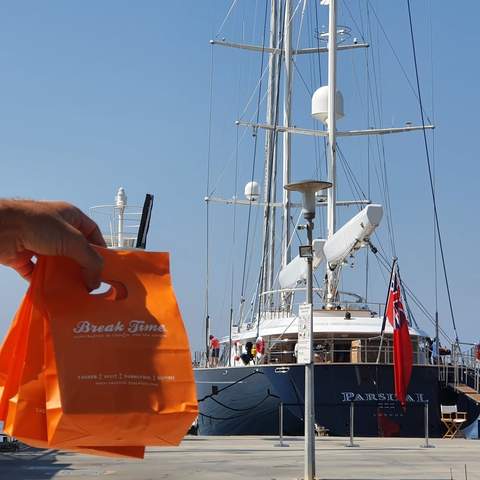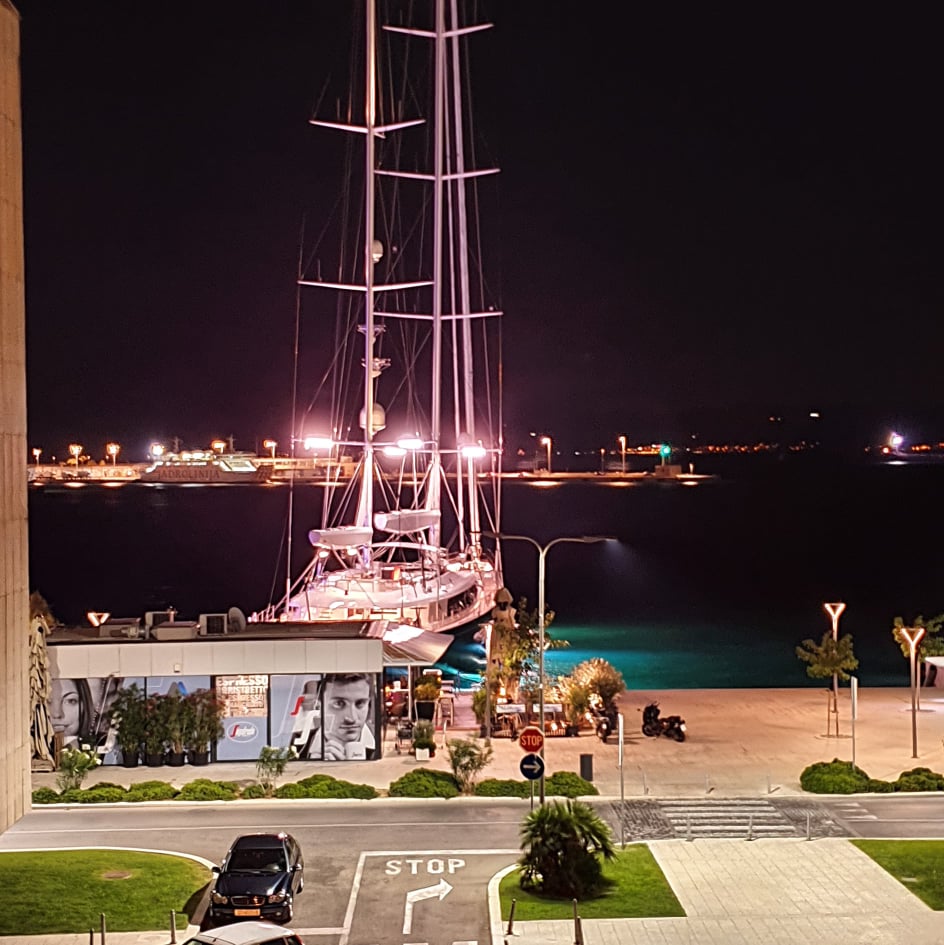2021 Goes Green: All You Need to Know About St. Patrick’s Day in Croatia
March 17, 2021 - As the final arrangements are being finalized to celebrate Saint Patrick's Day one more year in several countries around the globe, here is everything you need to know about how one of the world’s most popular holidays will be celebrated in Croatia.
Each 17th of March, the Irish population and the Irish diaspora around the world commemorate the death of St. Patrick, the patron saint of Ireland, and the arrival of Christianity there. The holiday has evolved over time to become a worldwide display and celebration of Irish culture, through colorful parades, special foods, dancing, drinking, and very importantly, a whole lot of GREEN.
Although there will be no mass parades and celebrations this year due to the COVID-19 situation, Tourism Ireland is ensuring that this important day can be celebrated safely all around the world. As a matter of fact, they’re proud to announce that a record has been set in their 12th annual ‘‘Global Greening’’ initiative here in Croatia, both in municipalities and the number of sites participating. Thus elevating the number of municipalities to nine (9), and the sites across the country to fourteen (14). Next, we will share the details of the celebrations that will be held in each of them:
- Zagreb: the Croatian capital is going ‘‘green’’ for the fifth time this year. Among the sites that will change their colors will be the Zagreb fountains, the Museum of Contemporary Arts, the Klović Palace Gallery, and the Meštrović Pavilion.
- Rijeka: also remains a strong supporter of the ‘‘Global Greening’’: Trsat Castle, the ‘‘Molo Longo’’ port cranes, and the fountain in the Adriatic Square will once again link Croatia and Ireland.
- Split: the Dalmatian city will light up its fountain in front of Prokurative.
- Dubrovnik: for the very first time, the ‘‘Pearl of the Adriatic’’ will include the Small Onofrio Fountain in the celebration.
- Zadar: this year, its ‘‘greening’’ will be moved to the ‘‘Greetings to the Sun’’ installation.
- Pula: the Istrian city is also changing its contribution this year - the roundabout at the entrance to the city will show its citizens and visitors that the city celebrates its Irish link.
- Varaždin: the northern city is back for a second time, as the Croatian National Theatre will be the city’s ‘‘green representative’’ this year.
- Hvar: it is one of the two Croatian newcomers to the initiative, and its Fortica will be quite a sight in their first year celebrating St. Patrick's Day.
- Oriovac: the other first-time participant and the only Slavonian municipality taking part, will green its Turkish fountain.
When will you be able to witness the greenings of the fourteen sites across the country? On St. Patrick’s Day, Wednesday, 17 March at 19:00! Be sure to be there at nightfall with your camera, and the right company!
More information on the 12th annual Global Greening initiative can be found at Tourism Ireland’s site.
For additional information regarding the Global Greening in Croatia, feel free to contact Bernard Vrban, Public Affairs Officer, at +385 (0)91 627 8934 or This email address is being protected from spambots. You need JavaScript enabled to view it..
For more about lifestyle in Croatia, follow TCN's dedicated page.
Spring is in the Air: Lufthansa Flights to Dubrovnik and Split for Easter
March 16, 2021 - The latest flight news for Croatia: Lufthansa flights to Dubrovnik and Split for the Easter holiday have been announced!
Croatian Aviation reports that German National Airline Lufthansa will resume traffic to two Croatian airports - Dubrovnik and Split - around the Easter holidays.
Lufthansa will resume traffic to two Croatian airports around Easter
The airline will strengthen the existing flights and renew traffic on several lines from Germany to traditional tourist destinations in Spain, Greece, Italy, and Croatia. Despite the restrictive measures in travel, Lufthansa records an increase in bookings around Easter, and consequently, there will be a resumption of traffic to the airports in Split and Dubrovnik.
The airline has already resumed traffic on the line from Frankfurt to Zagreb and has also canceled the line from Munich to Zagreb.
The Munich - Split - Munich line will be in operation from Saturday, March 27. Three flights a week have been announced, until April 15, every Friday, Saturday, and Sunday. Additionally, a flight is available on Monday, March 29.
The Frankfurt - Split - Frankfurt line will operate from Thursday, April 1. By April 18, 8 return flights have been announced. After the holidays, the line will operate on Saturdays and Sundays.
The Munich - Dubrovnik - Munich line will operate from Sunday, March 28. From April 1, two flights a week are available, every Thursday and Saturday.
On the routes to Split and Dubrovnik, E190 aircraft with a capacity of 100 passengers have been announced. If necessary, the airline will react and increase the capacity following the bookings.
For the latest travel info, bookmark our main travel info article, which is updated daily.
Read the Croatian Travel Update in your language - now available in 24 languages.
Organizer Joe Bašić Hopeful for Ultra Europe 2021: "Still Too Early to Draw Conclusions"
March 16, 2021 - Organizer Joe Bašić is hopeful that Ultra Europe 2021 will be held this summer, as the electronic music festival in Split is still four months away.
Spring is just around the corner, and with it comes the growing speculation about the upcoming festival season, which starts in May. European countries are opting for various tactics: from COVID passports and mass vaccination of citizens to fast and accessible antigen tests, which could save events on the coast. Especially the ones organized by the UK.
Some of the world's largest music festivals have already written off 2021, but festivals in Croatia are not yet giving up.
In Croatia, the outdoor festival season lasts from May to September, and since it came to Split, Ultra Europe is certainly the most popular event on the Adriatic. A three-day mass party with mainstream electronic stars brings tens of thousands of tourists and significant income to the city, and during the week of Ultra, Split garages, sheds, balconies, and yards are even rented. Festivalgoers sleep outdoors; some do not sleep at all. They come from all over the world, and they are there to have a good time.
Some locals are bothered by the crowds and noise, others by the garbage and clutter that is inevitably left behind after thousands of party-goers are in the city, but no one can deny the economic impact it has on Split. Will thousands of international party people march through Split with the flags of their countries again?
24 Sata reports that Ultra Europe organizer Joe Bašić hopes so. Still, the news from Miami, published just a few days ago, isn't too optimistic. Recall, Ultra in Florida has been canceled again, and the culprit is, of course, the COVID-19 pandemic.
"It is too early for any conclusions about Ultra in Split. There are four more months until then. We monitor the situation, and it changes from day to day. We are cooperating with the city, we respect the measures of the Headquarters, and we can only hope that everything will be fine by July," Bašić said.
Security restrictions are there for a reason, but there would be equal bans for caterers. Is it worth organizing the festival at all if it turns out that Ultra can only have 20% or 30% capacity and that guests must adhere to strict measures?
"We will have to sit down and see what can be done in such a hypothetical case and what cannot. I can't tell you anything more detailed so far; it's hard to be really smart at the moment," Bašić admits.
There is a lot of talk about 'COVID passports.' Spain will test the model in Ibiza, the celebrated mecca of partygoers, as early as May. If this proves to be a good enough protection model, they will implement it nationally in the summer season. Bašić says that nothing concrete has been said about it so far, but he will consider all the options that can help this year's festival in Split see the light of day. If the worst-case scenario comes true, Ultra will be transparent with its audience.
"We will refund the ticket money to those who request a refund, and for those who choose to keep the ticket, it will be valid next year. Our policy was the same last year," Bašić announces.
Just a week before Ultra, the Dimensions Festival is a treat for slightly different electronic music fans. This summer, it is moving from Istria to Tisno and Šibenik to St. Michael's Fortress, and despite the pandemic, the organizers announced that the music event is scheduled for July 1-5. For now, they expect that we will be able to have fun by some 'old standards.' It should not be forgotten that last summer, after the first wave of the virus subsided, a music festival experiment on Martinska succeeded. It was one of the few locations in Europe where several smaller festivals and concerts were held, and where no increase in the number of cases was recorded.
Outlook and Seasplash festivals have already been announced, and additional information about Membrain, Blast, Regius, Kanal Fest, Slurp! will be released soon.
To read more about lifestyle in Croatia, follow TCN's dedicated page.
Spring at Split's Brasserie on 7: All-Day Brunch and Special Lunch Menus from Monday!
March 14, 2021 - The weather is warmer, the terraces are open, and Brasserie on 7 is back with a spring offer you won't want to miss. A look at what's on this spring at Split's Brasserie on 7.
To welcome the new season, sunnier weather, and any excuse to get outside, Split Riva hotspot Brasserie on 7 is sharing their terrace with you this spring to enjoy all-day brunch and lunch specials that'll make you coming back for more.
Namely, from Monday, March 15, sit back and soak up the sun from B7 while savoring an all-day brunch menu with freshly brewed coffee/tea and your choice of French toast, Eggs Benedict, or an Acai Bowl - for just 60 kuna to boot!

And B7 doesn't stop at brunch.
Bring your lunch break to B7 for a standout menu including the custom beef-blend burger, seafood risotto, or chickpea salad dressed in a grilled lemon vinaigrette, all served with a complimentary glass of wine or beer.

Recall, Brasserie on 7 appointed French / American Alexandre Ange as Chef de Cuisine last month.
Classically trained in French cuisine, Alex has spent the past 12 years working in some of the top restaurants in France & the United States, including the famous L’Atelier in Paris, run by Chef Joel Robuchon (the chef with the most Michelin stars in the world). Alex made the move to Split, together with his family, with an exciting vision on how to expand and improve on the imaginative and inventive À la carte menu that B7 is already famous for:
“I strongly believe in using local ingredients and supporting Dalmatian producers. My vision is to bring our guests an exceptional and memorable dining experience by introducing a renovative food menu that satisfies the taste bud of local and international guests”, pledges Ange.
This spring, the new B7 Executive Chef will be introducing subtle changes across the menu, while using the very best produce Croatia has to offer.
“Delicious exciting changes are coming to our breakfast, lunch, and dinner menus - including vegetarian and vegan dishes, but we will let you discover them when you visit us at Brasserie on 7 in Split this season," invitingly says the front of house Ivan Rabadan.
For the last seven years, Brasserie on 7 has become known for its world-class breakfast in an iconic Riva setting, a casual upscale café vibe for lunch, and a refined coastal French-inspired Adriatic dinner to both tourists and locals alike.
To read more about lifestyle in Croatia, follow TCN's dedicated page.
Train Tickets from Prague to Rijeka and Split On Sale by Czech RegioJet
March 10, 2021 - Czech railway RegioJet has started selling train tickets from Prague to Rijeka and Split!
HRTurizam reports that the summer railway line that connected Prague and Rijeka last tourist season attracted great interest from Czech and Slovak tourists. The average train occupancy was higher than 90%, with a capacity of almost 600 passengers per line, while trains carried a total of more than 60,000 passengers in both directions.
Following such success, the Czech RegioJet, a private provider of rail and bus passenger transport, has announced the pre-sale of tickets for this season. This year, in addition to Rijeka, Prague will be connected to Split.
RegioJet has started selling tickets for this season's railway line from Prague to Rijeka and Split
RegioJet's trains will run on their route from Prague via Bratislava to Budapest and Zagreb and Rijeka and Split.
Trains will depart on May 28 and run until September 27, with the arrival in Croatia daily in July and August, and three times a week in May, June, and September.
In combination with bus transport from Rijeka and Split, RegioJet promotes and offers arrivals to as many as 56 destinations in Croatia.
Departures from Prague / Bratislava are on Fridays, Sundays, and Tuesdays and back from Croatia on Saturdays, Mondays, and Wednesdays. Passengers in Rijeka, Gračac, and Split will be met by buses that will continue to reach all destinations on the coast.

Last year, buses from Rijeka enabled passengers to transfer to the following destinations: Opatija, Rabac, Medulin, Pula, Rovinj, Poreč, Novigrad, Malinska, Šilo, Vrbnik, Krk, Baška, Crikvenica, Novi Vinodolski, Zadar, Sukošan, Biograd, Pakoštane, Omiš, Brela, Baška Voda, Makarska, Podgora, Podaca, Gradac, Šibenik, Primošten, Trogir and Split. This year, due to the new railway line to Split, new destinations will be added, and bus travel to new destinations will continue. RegioJet also offers the option to continue traveling to BiH and Montenegro.
Explaining what the RegioJet train route will look like this year, Aleš Ondruj, spokesman for RegioJet, said that the train would be divided into two parts in Ogulin - a part that goes to Rijeka and a part that goes to Split.

The train will be separated so that seven passenger cars will go to Rijeka and eight across Gračac to Split. Upon return, the trains will be reconnected into one in Ogulin and continue further to Prague, Ondruj explained, emphasizing that the total capacity of trains should reach as many as 650 passengers per train, i.e., 15 cars.
The train will offer a free breakfast included in the ticket price, internet connection, and bicycle transport will be available. You can also book the entire compartment for four people for the price of three.
This year, RegioJet also offers a complete product with the possibility of booking accommodation at certain hotels in Poreč, Crikvenica, the island of Krk, Makarska, and more.
Last year, most passengers traveled from the Czech Republic, while 10 percent of tickets were sold in Slovakia.
For the latest travel info, bookmark our main travel info article, which is updated daily.
Read the Croatian Travel Update in your language - now available in 24 languages.
University Hospital Centre in Split Performs its First Stem Cell Transplantation
ZAGREB, 10 March, 2021 - The university hospital centre in Split recently performed its first transplant of stem cells, and the patient concerned is a 62-year-old woman, who is recovering from the surgery very well, the centre's director, Julije Meštrović said at a news conference on Wednesday.
The operation was performed 16 days ago, and this is the first time to have a stem cell transplant outside Zagreb.
This is a great success for the medical profession in Split and Croatia, he said.
Three hospitals in Zagreb perform stem cell transplants, and the first surgery of this kind was conducted in 1983.
The Split hospital expects to annually carry out 10-15 transplants of this kind.
For more about health in Croatia, follow TCN's dedicated page.
Below Deck and Break Time: How Stray Cats Connected US Reality Show and Split Nautical Jewelry
March 8, 2021 - So, how was Split's famous nautical jewelry shop connected with one of the most famous reality shows in the US? Stray cats. A look at the Below Deck and Break Time bracelet story.
The Croatian National Tourist Board reports that the new season of the highly popular American reality series Below Deck Sailing Yacht, filmed in Croatia last summer, began airing on American cable television Bravo TV, the head of the Croatian Tourist Board in Los Angeles, Iva Bahunek, revealed on Monday.
"The show will last at least 16 weeks, which is the perfect time to additionally promote Croatia because it is the period when Americans most often book their trips. An additional benefit is that this series is shown in other countries. We are especially pleased with the production team's assessment that, of all previous seasons, the most attractive and interesting season was filmed in Croatia," said Bahunek, adding that the recent Golden Globe Awards broadcast an advertisement for the new Below Deck season, which gave the series, but also Croatia, additional visibility on the American market.
This famous American reality show has been airing since 2013, and the concept of the show includes following the professional and private lives of the crew and their guests on mega yachts. The new season of Below Deck Sailing Yacht 2 - CROATIA was filmed in the Split waters during July, August, and September 2020. During the filming, the 54-meter-long Parsifal III sailboat was used, anchored in front of the Le Méridien Lav Hotel in Podstrana near Split. It is also interesting that this was the first Hollywood production that was filmed entirely and without interruption outside the United States during the coronavirus pandemic, in which a significant contribution was made by the Split Institute of Public Health.
Just how much they liked Croatia and their kind hosts was confirmed by the $40,000 donation from the production company 51 minds and Bravo TV through the Global Giving Charity to help earthquake victims in Sisak-Moslavina County. Furthermore, all fans and viewers will also be able to donate to the same cause.
Namely, during the premiere of the first episode of the series, the show's biggest stars invited viewers to donate, which will be shown during the broadcast throughout the spring and early summer of 2021. Fans of the show will be able to donate through the Ministry of Finance portal, and the entire action was initiated by Iva Bahunek, head of the CNTB in Los Angeles.
But that's not all.
During their time in Split, Below Deck's main charter guests were connected with one local nautical jewelry shop TCN fans know well - and it was all thanks to stray cats.
"On August 11th, 2020, a group of cool American tourists entered our shop. If you watched episode 1 and 2 of the Below Deck Sailing Season 2, then you know them: the main charter guests Nikki and Rusty, along with their friends, came to our Trogirska 8 Split Atelier & Outlet Store in Split to leave a very generous donation of 1200 USD on behalf of their ARNI Foundation in Daytona Beach, Florida to help with the stray cat situation in the Split area, a donation which was put to very good use by the ladies who run the Macke & Co. Group.
They read Daniela Rogulj's article in Total Croatia News about the work that the ladies from the Macke group are doing and about the bake sale we organised in our shop to support the stray cats of Split. They came to us straight after getting off Parsifal III," said the Break Time owners Mirela and Leonard on their blog about the news, which they were only now able to reveal to the public!
And it gets better.
"Nikki and Rusty had no idea what our shop was actually about, but they immediately fell in love with our nautical bracelets and, besides getting some for themselves and friends back home, they ordered 12 of our Yacht Club anchor bracelets for the crew of Parsifal III, all custom engraved with the message "Live long, sail hard" to honour Nikki's father (you probably say also the Tshirts they were wearing in episode 1 of Below Deck Sailing).

We also made a special Captain by Break Time all-black nautical bracelet for Captain Glenn, engraved with PARSIFAL III (and from what we could gather from the teaser images, he is wearing it)," they added. Being big fans of the show, they decided to deliver the bracelets to the Le Meridien Lav marina themselves.

While Mirela and Leonard could not meet the crew due to COVID-19 restrictions, the story uncovers an even happier ending.
"A couple of weeks later, Nikki wrote to us and asked us to make 80 more custom engraved "Live Long, Sail Hard" anchor bracelets from our YACHT CLUB by Break Time original collection for the entire production team of the Below Deck Sailing Yacht Season 2 Croatia. It was our biggest private order in 2020, and we were happy to oblige. My partner, Leonard, worked non-stop for a whole day to make them and engrave them while I helped packing them nicely."

The Below Deck series is shown on the Bravo TV network, one of the most-watched American cable channels, which in 2020 recorded a large increase in "on-demand reviews," 427 million to be precise, as well as 222 million "live broadcasts." So far, a total of 15 seasons of this TV franchise have been filmed, consisting of Below Deck, which is filmed in tropical destinations, Below Deck Mediterranean, which is filmed in the Mediterranean, and the latest Below Deck Sailing Yacht, which is filmed on large sailboats unlike other variants of the series that are filmed on motor yachts.
To read more about lifestyle in Croatia, follow TCN's dedicated page.
Meet John Rogošić, Founder of First International School in Split
March 8, 2021 - Croatian-American John Rogošić will soon open the first International School in Split!
“I feel at home in Split; my family and friends are here. Split is a beautiful city near beautiful islands, surrounded by natural beauty, good restaurants, and rich cultural and historical heritage. I like to wander around Diocletian's Palace, to feel the history and architecture for a moment. Split is truly unique.”
With these words, Dr. John Rogošić tells Slobodna Dalmacija why he chose Split and a project that will come to life this fall. The Split International School will open its doors, opening new educational opportunities in the 2021/2022 school year for primary school children, both local and foreign, who chose Split as a destination for similar reasons as John Rogošić.
John Rogošić was born in New York. His father lived in Dugopolje before moving to the USA, where his parents met.
Dr. John Rogošić completed his early education in New York and his graduate and doctoral studies at MIT (Massachusetts Institute of Technology) in Boston.
“My main scientific research was in the field of electrochemistry, and I also had several smaller projects in the field of biology and mechanics. In addition to lecturing in college, I spent some time doing online education at edX. When I moved to San Francisco, I taught chemistry, biology, and robotics in high school,” he said about his work in America.
He also says that he moved away from teaching for a while when he was a co-founder of a technology startup, which was short-lived.
“I quickly returned to class after realizing how much I enjoy working with students. I sincerely believe that education is my true calling,” he points out, adding that he has focused mainly on founding a new school since coming to Croatia. Still, he has cooperated with the Split-Dalmatia County Center of Excellence to plan interesting new educational projects.
When asked about why he returned to Croatia, Rogošić said that they always visited during the summer months as a family, and when he grew older, he came even more often. When he arrived in Croatia in April 2020 during the coronavirus pandemic, he made an important life decision.
“I am closely connected with friends and relatives I have here. And like many other people, the pandemic prompted me to stop and think. I realized that I feel at home in Croatia. When I decided to stay here, I did not have a plan, I just felt that I wanted to spend the second half of my life here, and I am delighted that I made that decision,” says Rogošić with satisfaction.
The international school's opening was prompted by a conversation with a Croatian-American couple he met last summer.
“They decided to return to Croatia as well, but none of their children knew the Croatian language at a level that would suit their education. Although international schools were available to them in Zagreb, they wanted to live in Split, not Zagreb. When we saw no suitable option for their family in Split, we decided to work on it together; we formed a small team to start this project. We have been working together for about six months, and we are happy with the decision to establish this school,” he said.
Meanwhile, their team has grown, joined by three other parents engaged in the successful launch of the new primary school.
Rogošić also points out that they have a five-member advisory board, which has a key role in leading and supporting all logistical, financial, and business aspects of this project.
“During the next few months, the teaching staff will join us, and thus we will finalize our team for the first year,” Rogošić revealed.
What have been their biggest challenges so far?
“We are still very active in this project, as in the past six months. Although there were a few unexpected challenges and perhaps a few cultural differences that we needed to overcome, we managed to overcome all the challenges and believe we will open the school this fall. I must point out that the people we met on this journey have provided us with incredible support and help. I want to take this opportunity to thank everyone who gave us advice and dedicated their time to bring our project to life,” he said.
Rogošić explains that the new school is intended for primary education and is based on the “International Bachelorette” (IB) program. This program has three levels - for both primary and secondary school and the "Diploma" program for advanced students. The IB program was launched in 1968 and is recognized in 158 countries in more than 5,400 schools worldwide, including Croatia. The umbrella organization is the International Baccalaureate Organization (IBO), which ensures that every school in education offers high standards, emphasizing a high level of knowledge and personal development of students.
“The IB program has been offered in Croatia since 1991. There are three authorized schools in Zagreb and one in Varaždin, and every year a small number of Croatian and international students complete the IB program. There are currently no IB schools in Dalmatia, so we think we will be the first to offer an IB program, but hopefully not the last. We hope that more schools here will provide the IB program,” John Rogošić says.
Classes will be held in English. Dr. Rogošić explains that the IB program can be held in English, French, or Spanish, but most often in English, which, as he emphasizes, is quite understandable given the families' needs.
“Of course, students will learn the Croatian language through one of the subjects to adapt more easily to life here and to be able to communicate more easily with the local community,” says Rogošić.
It would also be expected that the school is located in a separate building, but Dr. Rogošić says that they are opening their school in a non-traditional way. Initially, the focus is on the upper grades of primary school (6th, 7th, 8th) because many families with children in that age group have shown interest in this international school.
This makes sense because it would be more difficult for older children who do not have a basic knowledge of the Croatian language in a class school. We also hope to organize classes for first and maybe second grade next year if there are interested families. We are currently looking to locate in the Manuš district and expect to have about 15-20 students in total during our first year of operation. In the future, we hope to move to a campus-style space, somewhere outside the city, but we can expect that only in a few years,” says John Rogošić.
As far as recruitment is concerned, teaching staff vacancies are still in the process. The school's founder says that they have several promising candidates, but there are also several open positions.
“We expect to find the necessary teaching staff this spring so that each of our teachers completes the required training program for the IB program on time, which we will start this fall,” says Rogošić.
Split is a destination for a growing number of foreigners who are developing their business here.
"Many families move to Split, either for business reasons, lifestyle, or some other personal reasons. In many cases, families want to move to Croatia, but only for a few years and then return to their countries or try to find a new place to live. Often their children do not know the Croatian language well, and changing the education system can be difficult.
One of the IB system's main advantages is that the program is offered in 158 countries around the world, making it easier for families to move from one country to another without interrupting their children’s education. This is one of the main advantages of this project, and that is why I think that having an IB school in Split is very important to help these families," emphasizes Rogošić.
Students of Split International School will have the opportunity to participate in the program "FIRST Robotics," in which they acquire knowledge in robotics. The goal is to inspire them to be scientific and technological leaders and innovators.
It should also be noted that the Harkness method is used in teaching, which allows students to work in small classrooms, but in a group environment, where their interaction and the development of the ability to think and reason is expressed.
To read more about lifestyle in Croatia, follow TCN's dedicated page.
Green Phone Network Receives 2,500 Croatian Calls About Environmental Problems in 2020
ZAGREB, 6 March, 2021 - In the last year, the Green Phone Network received about 2,500 calls from Croatian citizens about environmental issues in the country, and most of those reports referred to waste.
Every citizen of the Republic of Croatia may report an environmental problem or request information on the number 072 123 456, the network which includes nine environmentalist associations, says on its web site.
One in four calls about inappropriate waste disposal
In 2020, most of the calls were warnings about the inappropriate waste disposal (every one in four calls), while class about construction detrimental to the environment made up 10.89% of those 2,500 calls.
Citizens complained about a poor air quality (10.41%) and about damage done to the greenery (9.61%).
Also some of the calls were about noise, traffic, environmental issues concerning forests, soil and animals.
After the establishment of the first Green Phone in 1992, other associations decided to launch the same service.
Thus in September 1999, with the financial support of USAID (United States Agency for International Development), Green Phone networks were established by seven associations for environmental protection: Zelena Akcija from Zagreb, Eko Pan from Karlovac, Environmental Society Žmergo from Opatija, Zelena Istra from Pula, Sunce from Split, Kap Života from Gospić, and the Society for the Protection of Nature og Slavonija i Baranja from Osijek.
In 2003, within the project "Strengthening the Green Phone Network", financed by the European Commission, five other environmental organisations joined the Network, and one in 2007. One member left the Network in 2010, so it now comprises nine associations: Zelena Akcija from Zagreb, Eko Pan from Karlovac, Environmental Society Žmergo from Opatija, Zelena Istra from Pula, Sunce from Split, ZEO Nobilis from Čakovec, Zeleni Osijek from Osijek, Eko Zadar from Zadar, and Krka from Knin.
The aim of the Green Phone is to encourage citizens to actively participate in environmental protection and to encourage the competent institutions to solve environmental problems more efficiently.
Aer Lingus Flights to Split, Dubrovnik, and Pula Returning this Summer!
March 5, 2021 - Aer Lingus flights to Split, Dubrovnik, and Pula have been announced in the Irish carrier's 2021 summer flight schedule!
Croatian Aviation reports that the well-known Irish carrier Aer Lingus plans to return to three Croatian airports in the upcoming summer flight schedule, which will take effect at the end of March.
In the 2020 summer season, AerLingus did not operate to Dubrovnik and Pula, while the airline had relatively short and reduced traffic to Split Airport. In the upcoming summer flight schedule, Aer Lingus plans to renew all routes to Croatia, but this will primarily depend on restrictive measures between Ireland and Croatia, which in turn directly affects bookings.
From May 1, Aer Lingus plans to operate again on the Dublin - Pula - Dublin route. The line is scheduled to operate twice a week, on Tuesdays and Saturdays, until September 28. A320 aircraft have been announced on the route.
On 45 announced return flights to Pula, Aer Lingus currently offers as many as 15,660 seats.
The Dublin - Dubrovnik - Dublin line has been announced from March 30, but it is expected that Aer Lingus won't begin operating on this line until May. From May to the end of September, five flights a week have been announced, every day except Tuesday and Thursday, also with A320 aircraft. In October, the airline will reduce the number of rotations to three flights a week.
The Dublin - Split - Dublin line should also operate from May 1 to October 1, with two flights a week, every Tuesday and Thursday. This is also the only line on which Aer Lingus operated last year after the lockdown was lifted in European countries.
From the beginning of May, the airline also offers the Cork - Dubrovnik - Cork line, but there is a great possibility that flights will be withdrawn from sale and that this line will not be in operation in the 2021 summer season. Two weekly flights are available from May 5 to the end of September, on Wednesdays and Saturdays.
For the latest travel info, bookmark our main travel info article, which is updated daily.
Read the Croatian Travel Update in your language - now available in 24 languages.


